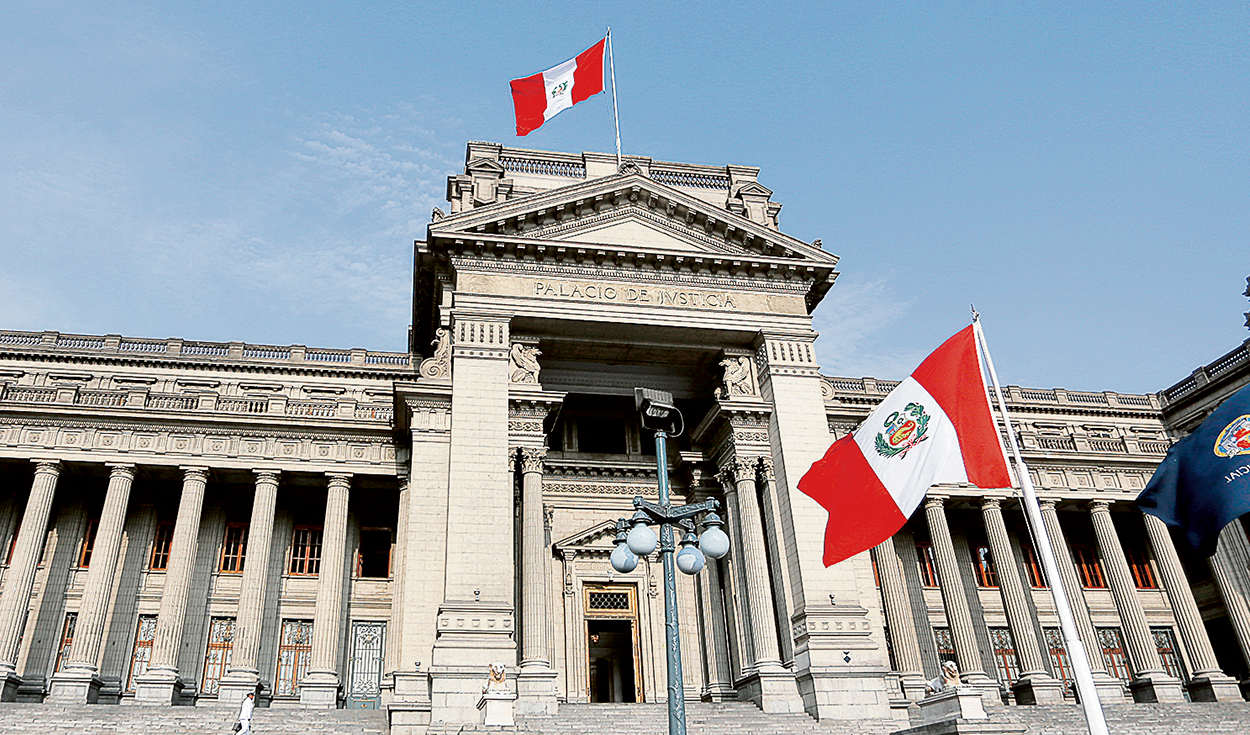
Almost a year after the Constitutional Court decided to condone the millionaire interests generated by companies that manage to bring their tax disputes before the Judiciary, the new formation of the Fifth Constitutional and Transitory Social Chamber of the Supreme Court could further cloud the processes in these types of conflicts and tip the balance for bad taxpayers.
The Chamber was created in November 2020 to address tax and customs issues that reach the Judiciary when, within the administrations (Sunat or Tax Court), some type of controversy persists on the part of companies. It is at this stage that a company, if the previous deadlines are exceeded, can process the forgiveness of interest generated by the unpaid debt.
The problem occurred on January 4, when a composition was established that included three provisional judges of the five that make up the Chamber, who would lack the specialization required for the position.
For Comex’s legal and regulatory affairs manager, Jaime Dupuy, this formation reduces predictability about how to resolve tax issues and could “increase the level of conflict.”
Dupuy explains that an appropriate court “will resolve fairly in favor of one party or another,” since disputes may arise with “companies that, without much cause, take their cases to the Judiciary.” But there may also be “disproportionate” administrative failures that should be corrected and a precedent set.
“Both the taxpayer and the administration are affected when you do not have judges who specialize in specific matters of customs or tax law. Non-homogeneous or poorly supported rulings emerge, it is a negative element for the justice administration system, which is relevant to promoting investments,” highlights Dupuy.
Former Minister of Justice Francisco Eguiguren agrees that, even when the lower judges who occupy these chambers have experience, provisional status has been a long-standing problem in the country, this time in a scenario that negatively complicates the issuance of rulings before the recognized delays at the Tax Court level.
“There are too many rooms due to the volume of cases. There are too many cases that reach the Supreme Court and there are not enough regular justices. So, provisionality is something that must be overcome, but for more than 20 years we have been talking about the same thing,” he accuses.
Sunat: trials affected by delays and poor suitability
The five judges of the Fifth Chamber of Constitutional and Transitory Law are Ulises Yaya Zumaeta (president), César Proaño Cueva, Yuri Pereira Alagón, Yenny Delgado Aybar and Luis Gutiérrez Remón.
When a taxpayer loses a tax dispute with Sunat, they can take the case to the Tax Court, where it takes up to 6 or 8 years. If he loses again, he can take it to the Judiciary, where the interest on his unpaid debt is forgiven.
The MEF questioned the TC’s decision at the time, but did not increase the budget to alleviate the deadlines in the Tax Court.
“Sunat demands very little and selectively, but with good foundation. Taxpayers demand a lot, but with weak foundations,” explains a former head of Sunat.
Reactions
Francisco Eguiguren, former Minister of Justice
“The deadlines have been reduced in favor of the taxpayer. When a process takes longer than that in administrative litigation, interest can no longer be charged to the company.”
Jaime Dupuy, gte. Comex Legal Matters
“Not only large companies, but any taxpayer who does not agree with the administration’s tax pronouncement can take the case to the Court, even mypes.”
Source: Larepublica
Alia is a professional author and journalist, working at 247 news agency. She writes on various topics from economy news to general interest pieces, providing readers with relevant and informative content. With years of experience, she brings a unique perspective and in-depth analysis to her work.












